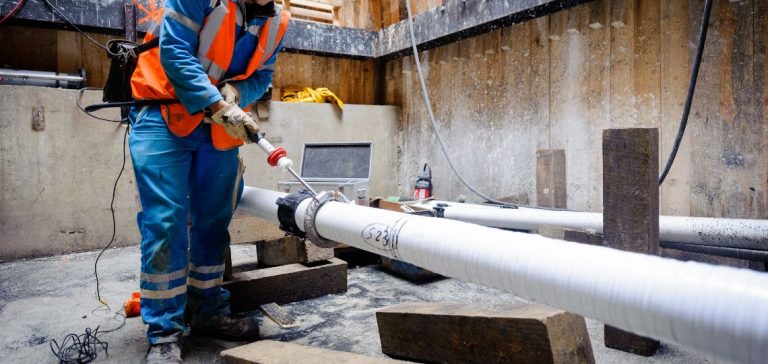The General Confederation of Labor (Confédération Générale du Travail, CGT) of the gas distributor GRDF expressed on Thursday its opposition to the board of directors’ decision to extend the lifespan of gas pipelines from 45 to 100 years. According to the union, this measure represents an increased “danger” for GRDF’s customers, a subsidiary of the Engie group.
This decision concerns gas pipelines installed in collective buildings since 1979. The CGT claims that this extension endangers the safety of gas distribution in France as well as that of citizens and users. The union recalls that similar decisions have already been made in the past, without always guaranteeing a real improvement in safety standards.
Risks to the Safety of Installations
The CGT emphasizes that extending the lifespan of gas pipelines without strengthening maintenance and control measures can lead to leaks and accidents. “These extensions will inevitably undermine the safety of gas distribution,” says Sébastien Raya, central CGT union delegate of GRDF. He adds that the safety of installations must remain an absolute priority to avoid potentially serious incidents.
The union also highlights an “economic sleight of hand,” asserting that GRDF is using this decision to reallocate funds initially intended for the safety of installations. According to the CGT, these funds are transformed into dividends for Engie, the parent company, at the expense of necessary investments to ensure the safety and reliability of distribution networks.
Impact on Tariffs and Financing
The decision to extend the lifespan of pipelines coincides with an average increase of 27.5% in the network usage fee (ATRD) on July 1, according to the Energy Regulation Commission (CRE). The CGT denounces that users have paid for the renewal of installations, but the funds are now being used for other non-transparent purposes.
GRDF, approached by AFP, responded by stating that this decision pertains to “pure accounting and fiscal transparency” without impacting its industrial policy. The management of GRDF assures that extending the lifespan of pipelines does not affect its ability to continue its program of bringing non-compliant structures up to standard nor its business project.
Ownership and Management of Gas Networks
Gas distribution networks are owned by local authorities, who entrust their management to GRDF through concession contracts. According to the CGT, GRDF does not respect the commitments made in these contracts regarding the provision of high-quality services and the safety of installations. “Through concession contracts, GRDF commits to providing services worthy of a great public service, but does everything differently,” says the union.
This situation raises questions about the governance and responsibility of gas network managers in France. The CGT calls for a re-evaluation of GRDF’s decisions and greater transparency in the use of funds allocated to the safety of installations.






















